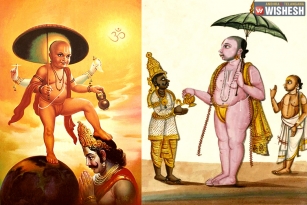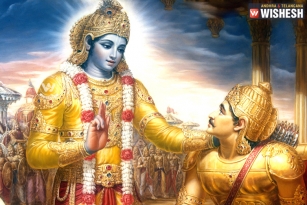
sri-bhagavan uvaca
asocyan anvasocas tvam prajna-vadams ca bhasase
gatasun agatasums ca nanusocanti panditah
Meaning of words
sri-bhagavan uvaca-Sri Krishna said;
asocyan--that which is not worthy of lamentation;
anvasocah--you are lamenting;
tvam--you;
prajna-vadan--learned talks;
ca--also;
bhasase--speaking;
gata--lost; asun--life;
agata--not past;
asun--life; ca--also;
na--never;
anusocanti--lament;
panditah--the learned.
Meaning of the verse
The Blessed Lord said: While speaking learned words, you are mourning for what is not worthy of grief. Those who are wise lament neither for the living nor the dead.
Explanation
Sri Krishna took the role of the teacher and chastised the student Arjun, calling him, indirectly, a fool. Lord Sri Krishna said, "You are talking like a learned man, but you do not know that one who is a learned is one who knows what body is and what soul is and does not lament for any stage of the body, neither in the living nor in the dead condition." Knowledge means, to know matter and spirit and the controller of both. Arjuna argued that religious principles should be given more importance than politics or sociology, but he is not aware that knowledge of matter, soul and the Supreme is even more important than religious formularies. Lord Sri Krishna guides him that, because he is lacking in that knowledge, he should not have posed himself as a very learned man. As he did not happen to be a very learned man, he is consequently lamenting for something which is unworthy of lamentation. The body is born and is destined to be vanquished today or tomorrow; therefore the body is not as important as the soul. One, who knows this, is actually learned and for him there is no cause for lamentation, regardless of the condition of the material body. Hence, we should know that body is not immortal but soul is. Nobody can destroy the soul and we have to satisfy the soul and not the body.
By Premji


















